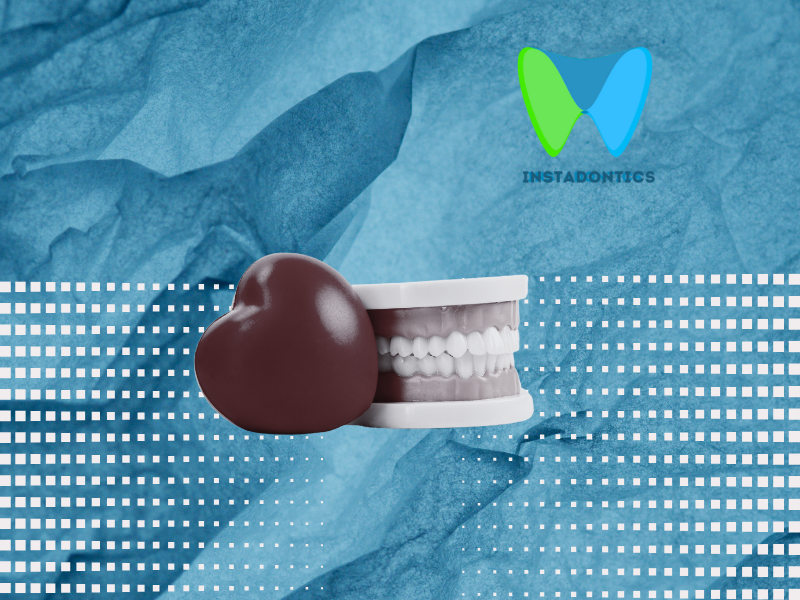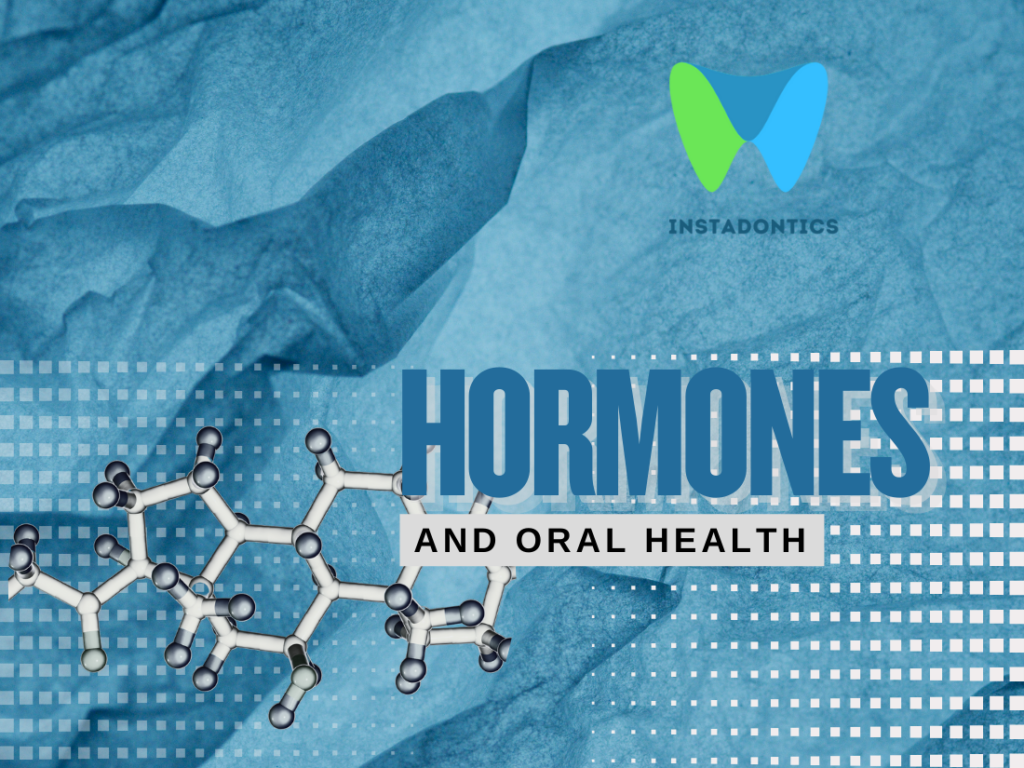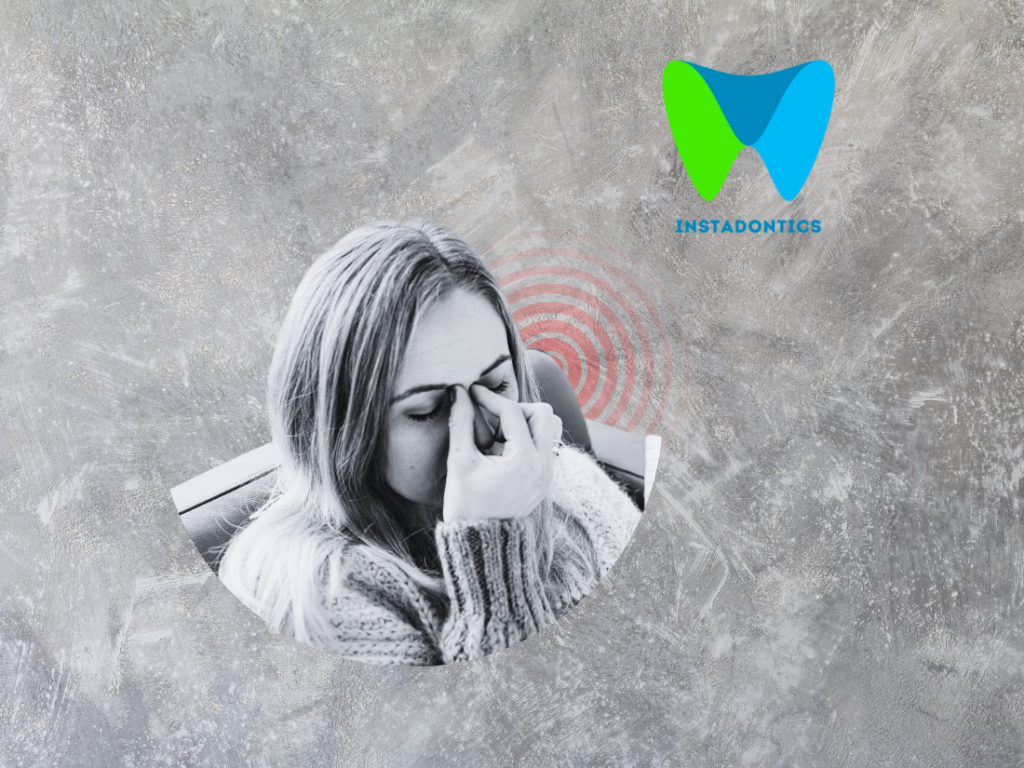Sleep apnea is a common yet serious sleep disorder where breathing repeatedly stops and starts during sleep. This condition not only affects the quality of sleep but also has significant implications for overall health, including oral health. Understanding the connection between sleep apnea and oral health is crucial for early detection and effective management. This blog post will explore how sleep apnea impacts oral health, detailing the symptoms, causes, risk factors, treatment options, and preventive measures to help you maintain both your sleep quality and oral health.
What is Sleep Apnea?
Sleep apnea is characterized by repeated interruptions in breathing during sleep. These interruptions, known as apneas, can last from a few seconds to minutes and may occur 30 times or more per hour. The three main types of sleep apnea are:
- Obstructive Sleep Apnea (OSA): The most common form, caused by the relaxation of throat muscles leading to airway blockage.
- Central Sleep Apnea (CSA): Occurs when the brain fails to send the proper signals to the muscles that control breathing.
- Complex Sleep Apnea Syndrome: Also known as treatment-emergent central sleep apnea, it is a combination of OSA and CSA.
Symptoms of Sleep Apnea
Common symptoms of sleep apnea include:
- Loud snoring
- Episodes of stopped breathing during sleep, often noticed by another person
- Gasping for air during sleep
- Waking up with a dry mouth or sore throat
- Morning headache
- Insomnia or difficulty staying asleep
- Excessive daytime sleepiness (hypersomnia)
- Difficulty paying attention while awake
- Irritability
How Sleep Apnea Affects Oral Health
Sleep apnea can have several direct and indirect effects on oral health:
- Bruxism: Many people with sleep apnea grind their teeth (bruxism) during sleep, which can lead to tooth wear, fractures, and temporomandibular joint (TMJ) disorders.
- Dry Mouth: Mouth breathing, common in sleep apnea patients, can lead to dry mouth (xerostomia). Dry mouth increases the risk of tooth decay, gum disease, and oral infections.
- Periodontal Disease: There is a significant association between sleep apnea and periodontal (gum) disease due to increased inflammation in the body.
- Dental Crowding and Malocclusion: Structural abnormalities in the mouth and jaw, such as a narrow palate or misaligned teeth, can contribute to both sleep apnea and oral health issues.
Causes and Risk Factors
Causes of Sleep Apnea
Several factors can contribute to the development of sleep apnea, including:
- Anatomical Factors: Excess tissue in the throat, a large tongue, or a narrow airway can obstruct breathing.
- Obesity: Excess weight, particularly around the neck, can increase the risk of airway obstruction.
- Age: Sleep apnea is more common in older adults.
- Gender: Men are more likely to develop sleep apnea than women.
- Family History: A family history of sleep apnea increases the risk.
- Alcohol and Sedatives: These substances relax the muscles in the throat, increasing the risk of airway obstruction.
- Smoking: Smoking can increase inflammation and fluid retention in the upper airway, increasing the risk of sleep apnea.
Risk Factors for Oral Health Issues
- Mouth Breathing: Common in sleep apnea patients, leading to dry mouth and increased risk of dental problems.
- Teeth Grinding: Associated with sleep apnea, leading to tooth wear and TMJ disorders.
- Poor Sleep Quality: Can lead to poor oral hygiene practices and increased risk of periodontal disease.
Treatment & Prevention
Managing Sleep Apnea
Effective management of sleep apnea is crucial to prevent complications and improve quality of life. Here are some strategies:
Lifestyle Modifications for Sleep Apnea
Lifestyle changes play a crucial role in managing sleep apnea, especially for individuals with mild to moderate symptoms or those who wish to complement medical treatments. Addressing certain habits and making conscious choices can significantly improve sleep quality and reduce the severity of sleep apnea. Here are some essential lifestyle modifications to consider:
Weight Management:
One of the most impactful lifestyle changes for individuals with sleep apnea is achieving and maintaining a healthy weight. Excess body weight, particularly around the neck and upper airway, can contribute to the narrowing or obstruction of the airway during sleep. Studies have shown that even a modest weight loss can lead to significant improvements in sleep apnea symptoms. In some cases, losing weight can even resolve the condition entirely. Weight management typically involves a combination of dietary changes, increased physical activity, and behavioral strategies. Consulting with a healthcare provider or a registered dietitian can help create a personalized plan that is both effective and sustainable.
Positional Therapy:
The position in which you sleep can have a direct impact on the severity of sleep apnea. For many people, symptoms worsen when sleeping on the back (supine position) because gravity causes the tongue and soft tissues to collapse backward, further obstructing the airway. Positional therapy involves techniques and devices designed to encourage side-sleeping (lateral position), which can help keep the airway open and reduce apneic events. Simple methods include sewing a tennis ball into the back of a pajama top to prevent rolling onto the back or using specialized pillows that promote side-sleeping. Some individuals may benefit from wearable devices that vibrate or alert them when they shift onto their back during sleep.
Avoid Alcohol and Sedatives:
Alcohol and sedative medications can relax the muscles of the throat and tongue, increasing the likelihood of airway collapse during sleep. These substances also tend to reduce the brain’s ability to arouse from sleep when breathing is interrupted, potentially worsening the frequency and duration of apneic episodes. Reducing or eliminating the consumption of alcohol—particularly in the evening—and avoiding sedative medications unless prescribed by a physician can lead to noticeable improvements in sleep apnea symptoms. If you require medication for anxiety or sleep, discuss alternative options with your healthcare provider.
Quit Smoking:
Smoking is a significant risk factor for sleep apnea. It irritates and inflames the tissues in the upper airway, leading to increased swelling and mucus production. This inflammation can worsen airway obstruction and contribute to more frequent and severe apneic events. Quitting smoking not only benefits overall health but also specifically improves airway function and reduces sleep apnea symptoms. Resources such as counseling, nicotine replacement therapy, and prescription medications are available to support individuals on their journey to quit smoking.
Medical Treatments for Sleep Apnea
While lifestyle modifications can be highly effective, especially in mild cases, many individuals with sleep apnea require medical intervention to manage their symptoms and prevent complications such as cardiovascular disease, high blood pressure, and daytime fatigue. Here are the primary medical treatments for sleep apnea:
Continuous Positive Airway Pressure (CPAP):
CPAP therapy is considered the gold standard treatment for moderate to severe obstructive sleep apnea. A CPAP machine delivers a continuous stream of pressurized air through a mask that fits over the nose or mouth (or both). This gentle air pressure acts as a pneumatic splint, keeping the airway open and preventing collapse during sleep. CPAP therapy can dramatically reduce or eliminate apneic events, improve oxygen levels, and restore restful sleep. While some people find the mask uncomfortable initially, most adjust over time and experience significant improvements in energy levels, mood, and overall health. Regular follow-up with a sleep specialist is important to ensure proper mask fit and machine settings.
Oral Appliances:
For individuals with mild to moderate sleep apnea, or for those who cannot tolerate CPAP therapy, oral appliances offer an effective alternative. These custom-made devices, typically fitted by a dentist with expertise in sleep medicine, work by repositioning the lower jaw (mandibular advancement devices) or holding the tongue forward (tongue-retaining devices) to keep the airway open during sleep. Oral appliances are generally easy to use, portable, and less intrusive than CPAP machines. They are particularly beneficial for people who travel frequently or prefer a less cumbersome treatment option. Periodic adjustments and follow-up visits are necessary to ensure optimal effectiveness and comfort.
Surgery:
Surgical intervention is usually considered when other treatments have failed or are not suitable. Several surgical options are available, depending on the underlying cause and anatomy of the airway obstruction. Common procedures include:
- Uvulopalatopharyngoplasty (UPPP): Removal of excess tissue from the throat to widen the airway.
- Genioglossus advancement: Repositioning the tongue muscle attachment to prevent airway collapse.
- Maxillomandibular advancement: Moving the upper and lower jaw forward to enlarge the space behind the tongue and soft palate.
- Implantable devices: Such as hypoglossal nerve stimulators, which stimulate airway muscles to keep the airway open during sleep.
Surgery carries risks and is typically reserved for severe cases or when other treatments have not provided adequate relief. A thorough evaluation by an ear, nose, and throat (ENT) specialist or a sleep surgeon is necessary to determine the most appropriate surgical option.
Managing sleep apnea often requires a multifaceted approach that combines lifestyle modifications with medical treatments. Weight management, positional therapy, avoiding alcohol and sedatives, and quitting smoking can all contribute to reducing symptoms and improving quality of life. For many, medical interventions such as CPAP therapy, oral appliances, or surgery may be necessary to achieve optimal results. Working closely with healthcare providers ensures that individuals with sleep apnea receive personalized care and support on their path to better sleep and overall health.
Protecting Oral Health
To protect your oral health from the effects of sleep apnea, consider the following tips:
Oral Hygiene Practices
- Brush and Floss Regularly: Maintain good oral hygiene by brushing twice a day and flossing daily.
- Use Fluoride Products: Fluoride toothpaste and mouthwash can help protect against tooth decay, especially if you experience dry mouth.
- Stay Hydrated: Drink plenty of water to help combat dry mouth.
Dental Treatments
- Mouthguards: If you grind your teeth, a dentist can provide a custom mouthguard to protect your teeth from wear and damage.
- Regular Dental Check-Ups: Visit your dentist regularly for check-ups and professional cleanings. Inform your dentist about your sleep apnea diagnosis.
Addressing Dry Mouth
- Saliva Substitutes: Over-the-counter products can help alleviate dry mouth.
- Chewing Gum: Sugar-free gum can stimulate saliva production and help keep your mouth moist.
FAQs & Myths
FAQ 1: Can sleep apnea cause tooth loss?
While sleep apnea itself does not directly cause tooth loss, the associated conditions such as bruxism, dry mouth, and periodontal disease can increase the risk of tooth loss if not properly managed.
FAQ 2: How often should I visit the dentist if I have sleep apnea?
Individuals with sleep apnea should visit their dentist at least twice a year for regular check-ups and cleanings. More frequent visits may be necessary if there are signs of significant oral health issues.
FAQ 3: Can children have sleep apnea and related oral health issues?
Yes, children can experience sleep apnea, often due to enlarged tonsils or adenoids. Symptoms include snoring, restless sleep, and behavioral issues. It is important to consult a pediatrician and dentist for proper diagnosis and treatment.
Myth 1: Only overweight people get sleep apnea.
While obesity is a significant risk factor, sleep apnea can affect individuals of all shapes and sizes. Anatomical factors, age, gender, and family history also play a role.
Myth 2: Snoring always means you have sleep apnea.
Not everyone who snores has sleep apnea. While snoring is a common symptom, other signs such as pauses in breathing, gasping for air, and excessive daytime sleepiness are more indicative of sleep apnea.
Myth 3: Sleep apnea is just a minor inconvenience and not a serious health issue.
Sleep apnea is a serious medical condition that can lead to severe health complications if left untreated. These complications include high blood pressure, heart disease, stroke, diabetes, and even increased risk of accidents due to daytime sleepiness. It is crucial to seek medical attention if you suspect you have sleep apnea.
Myth 4: Surgery is the best treatment for sleep apnea.
While surgery can be an effective treatment for some individuals, it is not the first line of treatment for most cases of sleep apnea. CPAP therapy and oral appliances are typically recommended before considering surgical options. Each treatment plan should be tailored to the individual’s specific needs and medical condition.
Conclusion & Takeaways
Understanding the connection between sleep apnea and oral health is essential for maintaining overall well-being. Here are the key takeaways:
- Sleep Apnea: A serious sleep disorder characterized by repeated interruptions in breathing during sleep, which can significantly impact overall health and quality of life.
- Oral Health Impact: Sleep apnea can lead to bruxism, dry mouth, periodontal disease, and dental crowding or malocclusion, all of which can compromise oral health.
- Causes and Risk Factors: Include anatomical factors, obesity, age, gender, family history, alcohol and sedative use, and smoking.
- Oral Health Protection: Maintain good oral hygiene, use fluoride products, stay hydrated, and visit the dentist regularly. Address dry mouth with saliva substitutes and sugar-free gum.
- Management: Effective management involves lifestyle modifications, CPAP therapy, oral appliances, and in some cases, surgery.
Lifestyle Modifications
- Weight Management: Losing excess weight can reduce or eliminate sleep apnea symptoms in many cases.
- Positional Therapy: Sleeping on your side instead of your back can help keep the airway open.
- Avoid Alcohol and Sedatives: Reducing or eliminating these substances can improve sleep apnea symptoms.
- Quit Smoking: Smoking cessation can reduce inflammation and improve airway function.
Medical Treatments
- Continuous Positive Airway Pressure (CPAP): A CPAP machine delivers air pressure through a mask to keep the airway open during sleep. It is the most common and effective treatment for moderate to severe sleep apnea.
- Oral Appliances: Custom-made devices that reposition the jaw or tongue to keep the airway open. These are often used for mild to moderate sleep apnea or for those who cannot tolerate CPAP.
- Surgery: In some cases, surgical options such as removing excess tissue, repositioning the jaw, or implanting devices to stimulate airway muscles may be considered.
By taking a proactive approach to managing sleep apnea and protecting your oral health, you can significantly improve your overall health and quality of life. For further reading and personalized advice, consult with healthcare professionals, including your primary care physician, sleep specialist, and dentist. Regular check-ups and open communication with your healthcare team are essential to effectively manage sleep apnea and prevent oral health complications.
If you suspect you have sleep apnea or are experiencing any related oral health issues, don’t wait—seek professional help today. Early diagnosis and treatment can make a significant difference in your overall health and well-being. Schedule an appointment with your healthcare provider to discuss your symptoms and explore the best treatment options for you. Additionally, make sure to maintain regular dental visits and inform your dentist about your sleep apnea diagnosis to ensure comprehensive care.
For more information on sleep apnea and oral health, visit reputable sources such as the American Dental Association (ADA), the American Academy of Sleep Medicine (AASM), the Centers for Disease Control and Prevention (CDC), and the National Institutes of Health (NIH).
By staying informed and proactive, you can effectively manage sleep apnea and maintain a healthy, vibrant smile.



